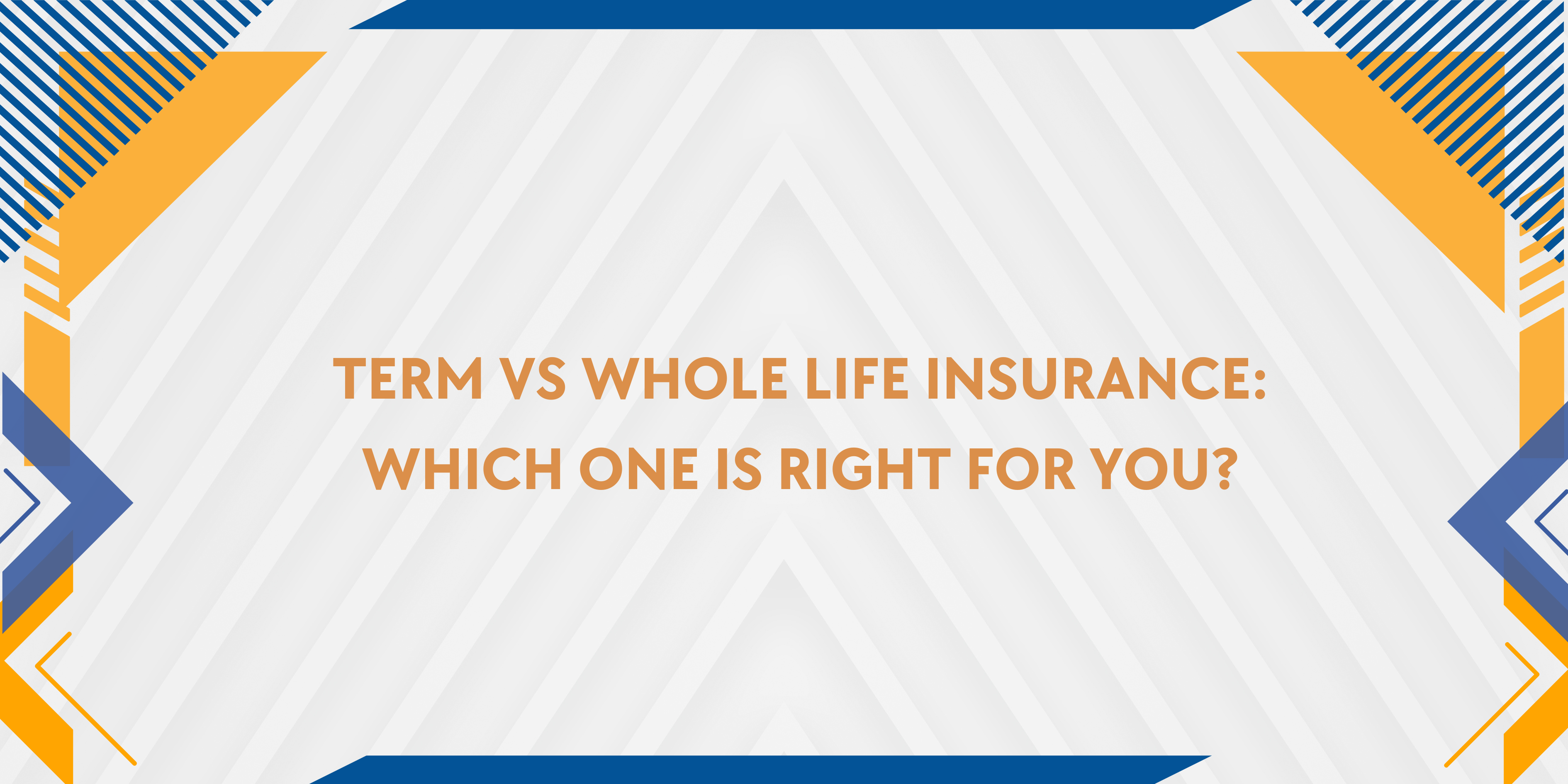Term vs Whole Life Insurance: Which One Is Right for You? When it comes to life insurance, the biggest question most people face is:
Should I choose term life or whole life insurance?
Both options offer valuable protection, but they serve different purposes and come with unique pros and cons. In this article, we’ll break down the key differences between term vs whole life insurance to help you decide which one is right for your needs, goals, and budget.
What Is Term Life Insurance?
Term life insurance provides coverage for a set period—usually 10, 20, or 30 years. If you die during the term, your beneficiaries receive a tax-free payout (called the death benefit). If you outlive the policy, it simply expires unless you renew or convert it.
✅ Pros of Term Life:
- Affordable premiums – especially for young, healthy individuals
- Simple and easy to understand
- Ideal for temporary needs (e.g., covering a mortgage, raising kids)
❌ Cons of Term Life:
- No cash value
- Coverage ends when the term expires (unless you renew at a higher rate)
💡 Best for: Young families, homeowners, or anyone looking for high coverage at a low cost.
What Is Whole Life Insurance?
Whole life insurance is a type of permanent life insurance. It provides coverage for your entire life, as long as you pay the premiums. In addition to the death benefit, it includes a cash value component that grows over time and can be borrowed or withdrawn.
✅ Pros of Whole Life:
- Lifelong coverage
- Builds cash value that grows tax-deferred
- Can be used as part of long-term financial planning
❌ Cons of Whole Life:
- Higher premiums than term life
- More complex and may include fees or limited investment returns
💡 Best for: People seeking permanent protection, estate planning, or a policy with a savings component.
Key Differences at a Glance
| Feature | Term Life | Whole Life |
|---|---|---|
| Duration | 10–30 years | Lifetime |
| Premiums | Low | High |
| Cash Value | No | Yes |
| Policy Expiry | Yes | No |
| Flexibility | High (cancel anytime) | Less flexible |
| Ideal For | Short-term needs | Long-term planning |
How to Choose the Right One
Ask yourself the following:
- What’s your budget?
Term life is more affordable and suitable for most budgets. - How long do you need coverage?
If it’s to cover a mortgage or until your kids are grown, term life works well. - Do you want to build savings or invest?
If so, whole life might make sense—but only if you understand the costs and benefits. - What are your long-term goals?
For wealth transfer or estate planning, whole life may offer strategic advantages.
Final Thoughts
Both term and whole life insurance can protect your loved ones, but the right choice depends on your goals, budget, and stage of life. If you’re looking for low-cost protection for a specific period, term life is usually the way to go. If you want lifelong coverage with a cash value component, whole life could be worth considering.
The most important thing is to get coverage that fits your life—not just your age.
